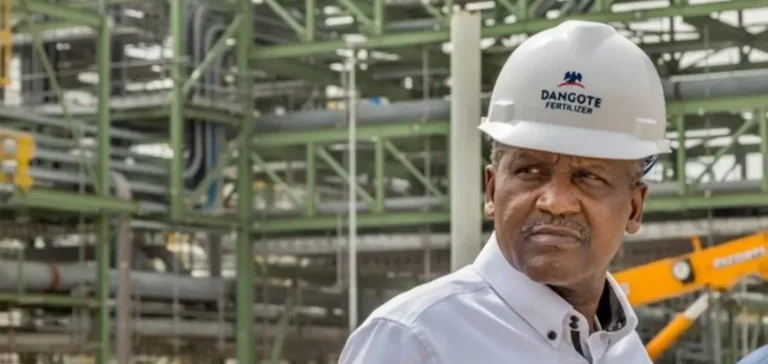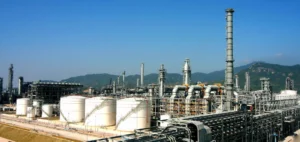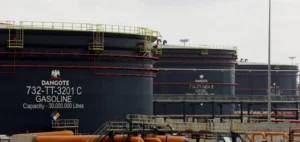Businessman Aliko Dangote, regarded as Africa’s wealthiest individual, has announced a major expansion plan for his private refinery located near Lagos, Nigeria. The facility, already operational with a capacity of 650,000 barrels per day, is expected to reach 1.4 million barrels per day within three years. This increase would make it the largest refinery in the world in terms of processing capacity.
A project driven by personal vision
Led by Dangote Industries Limited, the initiative is part of a broader strategy to reposition Nigeria as a key global refining hub. Before the opening of this refinery, the country imported nearly all its refined petroleum products despite being Africa’s top crude oil producer. Nigeria currently produces around 1.5 million barrels of crude oil per day, according to the Organization of the Petroleum Exporting Countries (OPEC), far below its national target of 2 million.
Aliko Dangote stated that the expansion responds to rising demand, particularly in West and East Africa. The refinery already exports kerosene to the United States, Europe, and Brazil. The company also plans to list the refinery on the Nigerian Stock Exchange next year, citing a goal of enhancing market transparency.
Labour tensions and government arbitration
The rise of the Dangote refinery has not been without challenges. In September, the use of a private fleet of natural gas-powered trucks to distribute fuel across Nigeria triggered a strike by tanker drivers. The drivers’ union alleged that employment contracts included a clause prohibiting union membership.
At the same time, the Petroleum and Natural Gas Senior Staff Association of Nigeria (Pengassan) accused the company of firing 800 unionised Nigerian employees and replacing them with 2,000 Indian workers. These claims were dismissed by the refinery as “lies”, stating that only a limited number of staff had been terminated due to acts of sabotage, without providing exact figures.
Stabilisation and private sector outlook
A mediation process led by Nigeria’s Ministry of Labour ended the strike in early October. The agreement included reassignment of dismissed employees to other Dangote Group entities without loss of salary. Aliko Dangote praised the federal government’s role in resolving the dispute.
The Dangote refinery is one of the largest privately funded industrial projects on the African continent. Meanwhile, a second private refinery is under construction by Abdul Samad Rabiu, founder of the BUA Group. These private initiatives come amid longstanding inefficiencies in public infrastructure and a declared aim to retain more value from domestically produced crude.





















